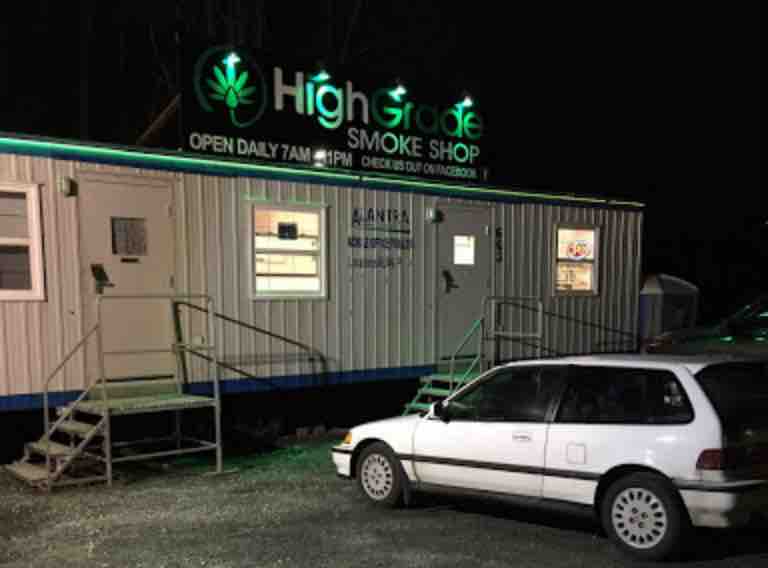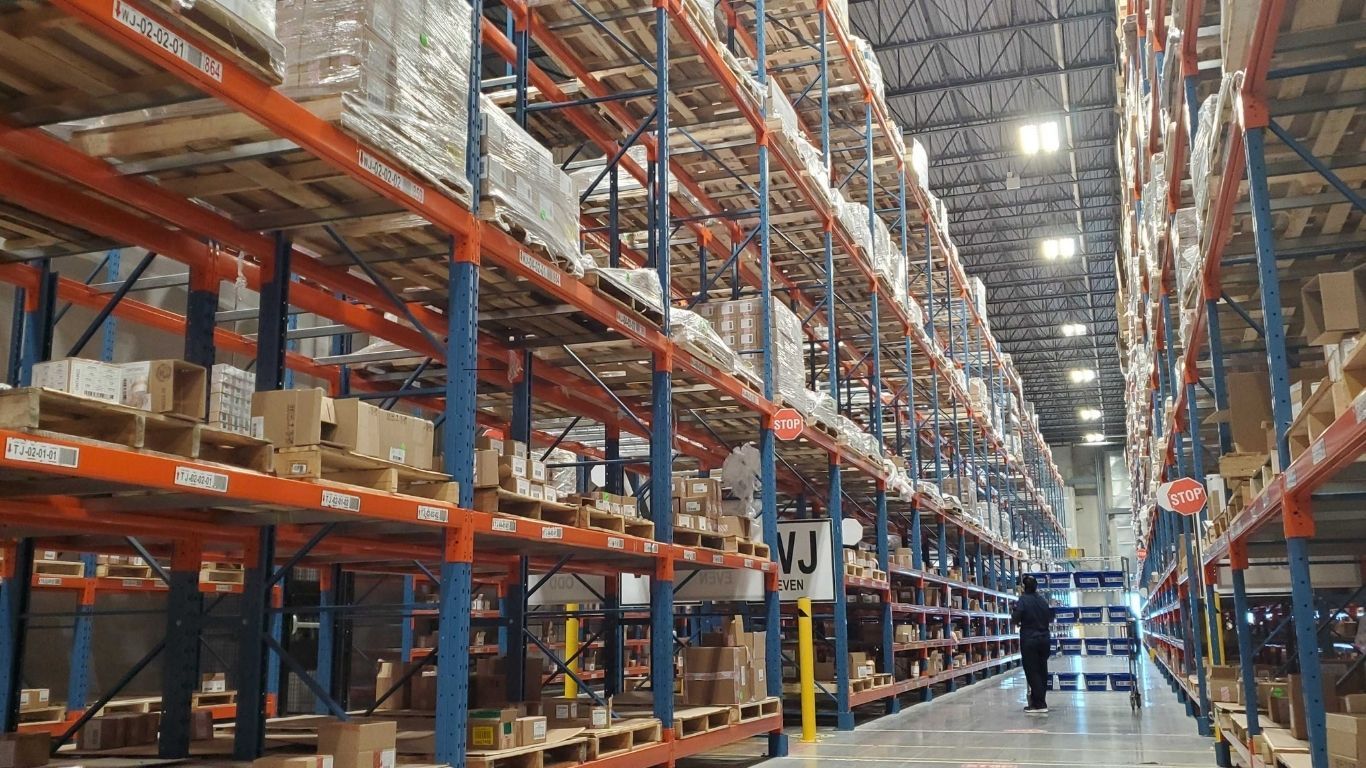
A Mi’kmaq band councillor from Millbrook First Nation in Nova Scotia, arrested in a 2020 police raid of Indigenous cannabis dispensaries, is mounting a constitutional defence arguing that his right to sell cannabis on First Nations land is constitutionally protected.
Nova Scotia RCMP officers raided Chris Googoo’s High Grade Smoke Shop, which sits on reserve land in Cole Harbour, NS, in December 2020 as part of a series of raids on five unlicensed cannabis dispensaries operating in the area. Googoo was arrested and charged with illegal possession and distribution of cannabis.
Googoo—who is being represented by long-time cannabis rights lawyer Jack Lloyd—is now staging a constitutional challenge under section 35 of the Constitution Act, which protects Indigenous treaty rights in Canada. Specifically, Googoo is referring to the 1752 Peace and Friendship Treaty, which promises the Mi’kmaw “free liberty to bring to sale to Halifax or any other settlement within this province skins, feathers, fowl, fish or any other thing they shall have to sell.”
“Exercising our inherent treaty rights is something that all of our people should be doing freely, and not have to be harassed by any bodies of government,” said Googoo, at a rally of supporters outside a Nova Scotia provincial courthouse in early October, where he was appearing to set trial dates.
The constitutional case will proceed next October, with four days of hearings scheduled in advance of Googoo’s criminal trial in November 2023.
“I am presenting a constitutional challenge to the court, and I am standing on my Aboriginal and Treaty rights to provide cannabis as a medicine,” Googoo wrote in a subsequent social media post. “I always stand up for our inherent and treaty rights, as sovereign peoples on our sovereign lands. Whether it be for fishing, hunting, cannabis, or tobacco, land or resources.”
Googoo is being backed by former president of the National Indian Brotherhood (precursor to the Assembly of First Nations) and one of the authors of section 35, Chief Del Riley, who has argued that the section grants Indigenous communities the authority to write their own cannabis regulation in parallel to federal and provincial law and to sell cannabis on reserve land. “You’re actually in a hell of a good position here,” he told members of the Millbrook community in April.

However, in 2019 Millbrook First Nations Chief Bob Gloade also said that such businesses are not supported by treaty rights.
“There is no treaty right protecting them in regards to selling, growing or distribution of cannabis whatsoever,” Gloade said. “It’s not a treaty or an aboriginal right because it does not state that anywhere. Our treaty rights basically focus around hunting and gathering not growing and distribution,” he said. “Individuals feel that it is a right and they’re extending it beyond the meaning of how the treaties are laid out in black and white and it puts us in a difficult situation.”
Since then, the Chief has changed his tune.
“Since that time, council has debated and discussed how to advance a cannabis strategy that is respectful of, and a benefit to, all community members, carried out in a way that prioritizes community sovereignty, safety, and well-being of everyone,” Gloade said in 2021.
“This is consistent with our inherent right to govern and our fiduciary duty to exercise jurisdiction over matters such as the community’s health and safety as a whole,” he said. “We continue to discuss the development of a cannabis regime and measures necessary for the Millbrook First Nation residents’ safety and enjoyment of life.”
Case could clarify jurisdictional disputes
The case, if escalated to the federal courts, could prove significant for the nascent Indigenous cannabis movement, which has sought in parts to operate independently of—some say in defiance of—federal legalization rules. Many Indigenous cannabis operators argue they have been effectively shut out of Canadian legalization, and support has grown for a so-called sovereign cannabis industry. There are estimated to be over 300 Indigenous cannabis dispensaries now operating across the country.
A similar constitutional challenge being brought by a group of 10 Anishinaabe dispensary owners in Ontario recently cleared a major legal hurdle when a judge refused the Crown’s motion to dismiss the case.
Last year, the Assembly of First Nations called on federal politicians to “recognize First Nations jurisdiction over cannabis and remove regulatory barriers that exclude First Nations from the marketplace.” Thus far, federal and provincial governments have held that Indigenous communities are able to harmonize their regulations with Canadian law, and governments have attempted (to varying degrees of success) to help with that process.
Millbrook First Nation is one that finds itself in just such a position, and they have had a rocky relationship with the legal cannabis industry. Initially hopeful that legalization would be a source of economic opportunity for the community, in 2018 the band council invested $5 million in licensed producer Zenabis’ growing facility in Stellarton, NS, which opened in 2019 but was decommissioned in 2022, less than three years later. Financial statements show that Millbrook had lost more than $4.2 million on that investment, amidst a broader market downturn for public cannabis companies.
Early this year, Millbrook First Nation published a report following a community consultation exploring the idea of sovereign cannabis regulations, concluding that there was significant community support for “developing Millbrook laws and regulations.” A group called the Mi’kmaq Cannabis Association has also formed in the wake of the raids and has argued that “cannabis can be regulated informally by the customs and conventions of the Mi’kmaq people.”
It’s unclear if Googoo’s case will be escalated to the precedent-setting, constitutional fight he appears to be angling for. An almost identical case in Cape Breton, where an Indigenous man was arrested for operating a dispensary on reserve land, was dropped by the crown suddenly this past September, averting a planned constitutional challenge. “I’m kind of upset about it,” said defendant Albert Marshall. “I would have liked to have gone all the way to the end of it—right to the Supreme Court—to justify our inherent right to trade medicine, to trade plants.”
Googoo will return to court on November 14.
~Kieran Delamont. Kieran is a writer and photographer in Halifax, Nova Scotia. He has written on the cannabis industry for The Walrus, This Magazine, The Outline, Leafly and others.
Featured image via APTN News













